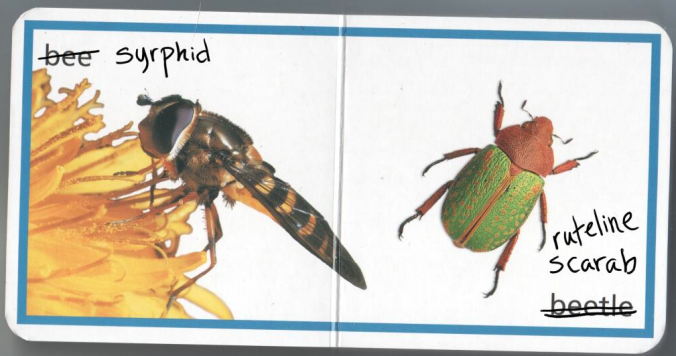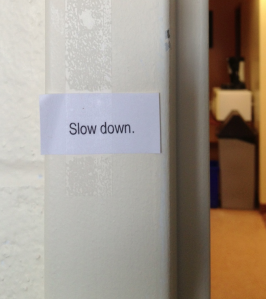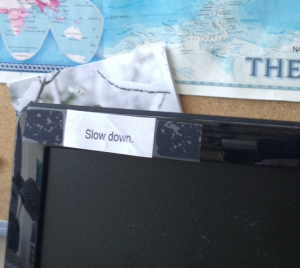Academics get asked to write a lot of letters of recommendations, and we are pleased to do this! Letters of recommendations can be really, really important when students are applying to grad school, or applying for scholarships. Strong letters can make a big difference, and that means it’s essential that students approach this with seriousness, maturity and professionalism.
When asking for a letter of recommendation, here are ten things to do, more or less in chronological order:
1) Plan ahead: Ask for letters well ahead of the deadline! Never, never assume your Professor will have the time or inclination to write a strong letter if the deadline is two days away. Give lots of advance warning (at least several weeks).
2) Ask nicely. Approach your Professor (in person, if possible; with a telephone call, or over email), explain what you are applying for (and why), and ask whether s/he might be willing to write you a letter of support.
3) Ask what kind of letter you might get! You need to know whether it’ll be a strong letter, or one that is perhaps less in-depth. In many cases, if I’ve only met a student in one class, and only have a grade to base a letter on, then I won’t be able to write a strong letter. You deserve to know this, and it may affect whether or not you should ask someone else. Don’t worry - most Academics are able to be honest (and nice) about what kind of letter they might be able to write. You must find out, early on, so that your chances of success are as high as possible.
4) rite gud. In all correspondence with the person who is writing a letter for you, ensure there are no grammatical or spelling errors. Be professional, respect credentials (e.g., don’t start with Hey prof Dude….), and make sure what you write is readable. Avoid common writing mistakes. This makes a big difference. Sloppy writing, poor grammar and spelling mistakes make me think less of a candidate and will affect the strength of a letter.
5) Include ALL the relevant details, in one well-composed e-mail:
a) What you are applying for (in appropriate detail - don’t just say “I’m applying to do a Master’s in Biology”)
b) When you don’t know your Prof. all that well, remind them who you are: it is helpful to state what course(s) you might have taken with the Professor, in what context, how you did in the class, and anything else to help those old minds recall who you are!. You may think that your instructors remember you well, but this is not always the case (we see hundreds of students each year, and we are all getting older…),
c) Provide a ‘statement of interest’ to give some context to why you are applying for a particular position or scholarship,
d) Provide an informal transcript, or at least your GPA so your Prof doesn’t have to ask for this later, and possibly your CV.
e) Provide the deadline for the letter! I can’t tell you how many times I’ve had to email a student to ask them what the deadline is. It’s annoying having to deal with email overload, especially when it is avoidable.
f) If there are PDF fillable forms, or web-links for the reference, make sure to include these!
g) if the Professor is going to get an e-mail from an Institution to which you are applying, make it clear that they should expect this.
6) Follow-up! If you haven’t heard anything within a week of when you sent your one e-mail, stop by the Prof.’s office, or give a phone call, to make sure that s/he received the details.
7) Make it easy: Always make the process of writing a letter of recommendation as easy as possible. In many cases PDF fillable forms have parts that are to be filled out the by candidate ahead of time - do this! For hard copies, make sure to fill in parts that you are supposed to, and always include a stamped envelope with the address written out. It’s YOUR job to ensure the letter gets sent by the Professor, and you don’t want their Department to have to pay for postage! If you are required to pick up the letter and send it in as an entire application package, provide two envelopes - one for their confidential letter, and another that they can slip the official envelope into - arrange a system by which you can pick up the letter.
8) Send a reminder... A few days before the deadline, send ONE reminder e-mail - politely remind your Professor that the deadline is approaching. For me, this is absolutely critical! I am usually aware of the need to write a letter for a student (it’ll be in my ‘to-do’ list), but that little reminder will stir me into action.
9) Say ‘Thank you’ - It is classy and professional to say thanks to whoever writes letters of recommendation for you. If your application ends up being successful, or you get that scholarship, you can even send a post-card, or a short thank-you letter (yes, in the mail!) - that leaves a very positive and lasting impression (and you never know when you will need another letter…). As a minimum, send a short ‘thank you’ email.
10) um, sorry, I don’t actually have a tenth tip. Except, perhaps, be sure to follow the nine that are written above! (maybe you have a tenth?)
…I hope this helps!
Students: you will get a better letter if you follow the tips.

























